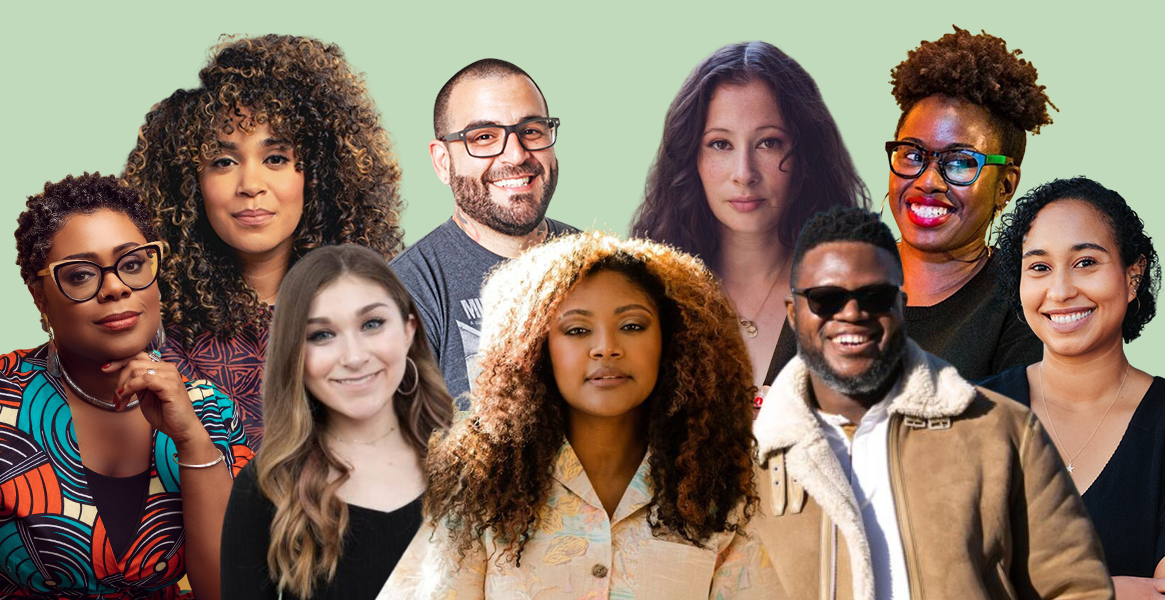Every so often I come across a book, that while reading it, I say, “Damn I could have written this!” And it’s not because the book is terrible or obviously written by ChatGPT, but because I see the stories of our communities, our culture, and our lives being told. It gives me a sense of empowerment. This is why every Latino must read — I mean like right after you get thru this article — the collection of essays and poems beautifully told in Wild Tongues Can’t Be Tamed, edited by Saraciea J. Fennell.
So what already makes this book, published in late 2021, so juicy is the attention-grabbing subtitle, 15 Voices from the Latinx Diaspora. It’s letting you know up front that there is going to be a little sazón de todo lado, in this diverse portrayal of Latinidad. Because, quite frankly, we should not be thrown into one big pot of blandness.
In this book, vamos a ver todo el mundo through amazing writers such as Mark Oshiro, Kahlil Haywood, Naima Coster, Elizabeth Acevedo, Janel Martinez, and Saraciea J. Fennell herself, representing Mexico, Panama, the Dominican Republic, Honduras, y mas. Not only that, we get to read from Natasha Diaz, representing a mixed ancestry of Brazilian, Liberian, and Jewish roots, Ibi Zoboi, a Haitian-American from Brooklyn, and Cristina Arreola, a Mexican-American born in El Paso, Texas. This lineup reflects an attitude of inclusion on behalf of Fennell, who boldly acknowledges that the Latin diaspora goes beyond cultures that speak only Spanish, and ancestry that traces only to Indigenous people or Spain. We really do have wild tongues within our cultures, figuratively and literally.
The most common topics found in this 272-page read are cultural assimilation, cultural loss, and cultural reclamation. These themes reflect the authentic experiences of those who are first-generation immigrants or those who have immigrated to Western, imperial countries, like the United States. Stories that can be affirmed by many.
One narrative that touched me a lot is that of Naima Coster, who describes how sometimes, our relatives turn into notorious legends that we should never speak of and certainly never look for. As if the association or mere mention of them will be enough to have mami, papi, y abuela deported. This idea of our family name and reputation needing to be squeaky clean (lest it soil our chances at the American Dream) appeals to the ideals of whiteness. It is the reason we are never to discuss family business because la gente le gusta hablar. As blatantly described by Coster, God forbid anyone finds out we have the tiniest drop of dysfunction in our households.
“A la gente le gusta hablar” can also mean not revealing too much of your background, because if you’re too foreign or have an accent, it can lessen your chances of success or increase your chances of pure ridicule. I mean is this not the reason why Latina women are still passing la plancha until every curl is bent stiff? Even in the most humid climates? The contempt of having a head of kinks and curls, possessing an accent, or perhaps with not even having one at all. Because speaking perfect English means your parents chose to assimilate, rather than maintain la lengua. Or maybe you are not so much ridiculed, but pressed to the pulp with questions as to why you are dark-skinned with a Spanish last name, a Spanish tongue, or “good hair.”
Wild Tongues Can’t Be Tamed has a little bit for everyone, wherever you are from within the diaspora. And even if your country is not represented in this book, it is likely that you, a parent, grandparent, or friend have experienced the hardships of being discriminated against because of your native tongue, physical appearance, or last name. It’s all just more reasons why Latin folks need to be a unified front. Not only to combat the forever looming elephant of whiteness, but also to reflect the truth that Latinidad is not a monolith. That’s how we deconstruct stereotypes given to us from non-Latinos and the stereotypes we have formed amongst ourselves. I recommend even non-Latinos read this book so they too can understand what we endure to be accepted. I like to believe the American Dream is not just one of financial or social mobility, but to be wild and free, just like the colorful diaspora we come from.
Wild Tongues Can’t Be Tamed is currently on bookshelves. Please visit your local independent bookstore and buy it now, because it is a damn good read and we’re all in this together.

